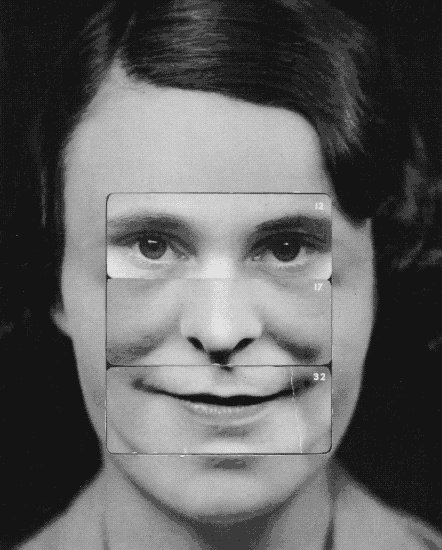Intergenerational Trauma
A Surprising Legacy of Displaced Suffering
The effects of trauma can be passed down through generations, but so can the resilience and healing. ~ Dr. Soma Ganesan
Eye color, blood type, and a predisposition to specific health issues are traits already present in our DNA at birth.
But did you know that trauma from prior generations can encode its message of emotional suffering, as well?
I sure didn't. However, after discovering this concept, I had to investigate further.
My grandmother suffered a traumatic event that I always believed affected the trajectory of her life, as well as my mother's.
Also known as transgenerational or multigenerational, intergenerational trauma refers to a type of trauma that's passed from one person to their descendants.
Trauma Response
But first, we must understand what a trauma response is. This is how a person thinks, feels, behaves, and/or responds when experiencing chronic stress or a traumatic event. These include shock, fear, anger, sadness, helplessness, and difficulty concentrating.
They are the primary responses to frightening circumstances. In the short term, they're helpful coping mechanisms. However, if we remain in this 'high alert' condition for longer periods, our physical and mental health will be negatively affected.
Our brains learn adaptive behaviors necessary for survival. These adaptations can be passed on to future generations and are hard to unlearn.
Living in 'survival mode' is a response to fear and trauma and restricts a person's capacity to thrive. Only through a sense of safety and security can people flourish.
My parents cared for our needs: a clean home, food on the table, laundered clothes, summer vacations, and our bills were always paid.
However, they each handled conflicts quite differently. Dad was loving and affectionate until he felt his authority was being challenged. Whether it was my Mom or us kids, his response was to yell angrily and take on a threatening posture.
Let me be clear: he never hit any of us. He apparently had boundaries where that was concerned. When his brother (my uncle) got drunk and pushed his wife at a family gathering, my Dad stepped in to protect my aunt. Then, my uncle turned his anger on Dad, who dragged him out of the house. I was young and don't remember anything after that.
Dad also misinterpreted the behavior of others. When I developed a stuttering problem as a four-year-old, he would reprimand me and tell me to stop talking like that. During this same time, I had an intense fear of thunderstorms. If we were out in public and I cowered, covering my face, he would yell at me to behave.
On the other hand, Mom was lenient and allowed us a lot of freedom—more freedom than I gave my own kids. She never used corporal punishment. I do remember one time Mom chased my brother and me around the dining room table with a bolo paddle, threatening to spank us (while we giggled.) Mostly, she would raise her voice if she got mad, but never on the level of what Dad did.
When I look at both sides of my family, it's obvious why Mom and Dad reacted the way they did. They weren't given the tools to discipline with love.
Dad only knew how to discipline from a place of outrage, and Mom didn't discipline much at all. They essentially learned what they lived.
He suffered from feelings of rejection due to childhood circumstances that he shared with me after I grew up. She was doted on and seldom disciplined. The reasons for this were due to her childhood circumstances, which she also shared.
(I delve into these intimate & personal backstories in my Private Subscriber-Only posts, which are available with an upgraded subscription.)
So, what does this type of trauma look like after the fact and sometimes years later?
PTSD (Post Traumatic Stress Disorder) - interferes with normal functioning and includes flashbacks, intrusive thoughts, nightmares, the avoidance of trauma reminders, negative changes in mood, and changes in arousal and reactivity.
Hypervigilance - constantly on guard, prone to overreaction, and has obsessive awareness of surroundings.
Anxiety - uneasiness or nervousness over anticipated problems
Mood dysregulation - inability to control one's emotions leading to mood swings.
Let's remember that these impairments vary in degree. The symptoms are proportional to the intensity of the trauma itself.
My parents were good people but unable to handle anger and difficult emotions in a healthy way. My siblings and I definitely carry some baggage related to our childhoods but managed to stay out of prison. 😉
Individuals (who don’t directly suffer the trauma themselves) won't experience the flashbacks or intrusive thoughts that affect the actual survivor. Their symptoms are inherited genetically.
Intergenerational trauma also results from racial and other systemic damage where entire groups of people are affected. Consider Holocaust survivors, refugees, and BIPOC based suffering.
How this happens involves epigenetics, DNA, and other biological procedures. It’s fascinating and potentially answers many questions regarding why people think and behave the way that they do.
NEXT WEEK: More information on the incredible process of ‘remembering someone else’s experiences.’
THANK YOU for reading Life Matters!
Subscribe to receive more weekly ‘bite-sized’ posts that offer info and encouragement in under ten minutes.
If you enjoyed the post, please Like/ Comment / and Share:
Life Matters is a reader-sponsored publication (No ads or affiliate links). Please consider supporting my efforts with a one-time tip OR upgrade to the paid membership for additional benefits:





i've thought a lot about this too and it makes sense. thanks for sharing this!
So interesting. Thanks for sharing. 🤩 Also sad, of course. 🤔😢